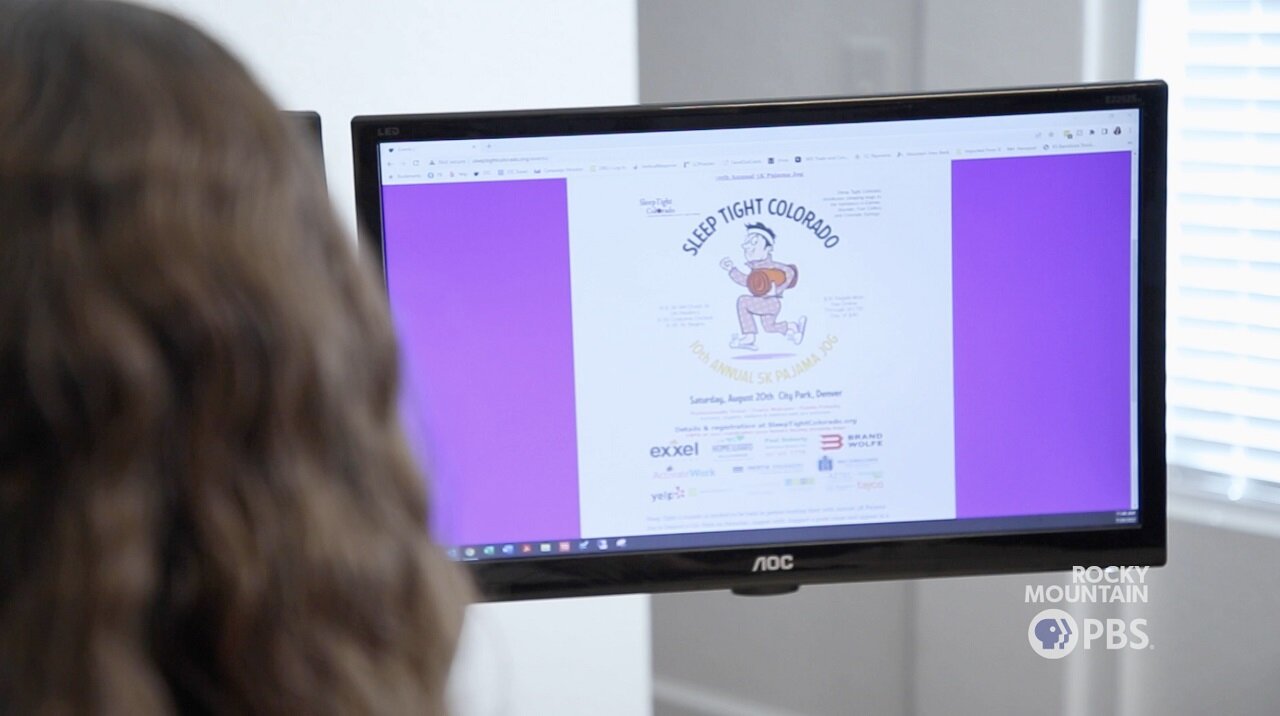Sleep Tight Colorado working to make small changes for homeless

DENVER — When the 2008 recession hit, Meredith Gershberg knew she needed to make a change.
Her lifestyle remained largely the same as the world seemed to crumble around her — colleagues lost jobs, friends lost homes and the unhoused population around her grew.
Taking lessons from a family member in New York City, Gershberg created a goal of gathering 75 to 90 sleeping bags per year and donating them to the ever-growing unhoused population in Colorado. After raising that amount in just four months, Gershberg formed Sleep Tight Colorado, a nonprofit she runs in addition to her full-time job, with the goal of gathering sleeping bags and distributing them to the state’s unhoused community.
Sleep Tight Colorado takes donations from the public and purchases bags on its own. Bags are then distributed to nonprofit organizations that work directly with people experiencing homelessness.
“We are so lucky that in the wintertime when we go home if we’re cold, we tap the thermostat to go up, and in the summertime, when we’re really hot, we turn on the a/c,” Gershberg said. “So many individuals don’t have that luxury, so our main goal is to get sleeping bags to individuals who find themselves in need of a warm night's sleep.”
Though Sleep Tight Colorado is based in Denver, the organization delivers services to populations across the state.
David Rout, executive director of Homeward Alliance, a homelessness services nonprofit in Fort Collins, said his group serves about 2,500 unhoused people annually throughout Larimer County. The group works primarily with individuals, so Rout said the number of homeless families in the area likely exceeds what he sees each day.
“It’s thousands of people on an annual basis who are experiencing homelessness in Larimer County,” Rout said.
Because its homeless population is the largest in the state, Rout said most state resources are allocated to Denver and its surrounding areas. Still, Rout said Denver resource centers likely feel under-resourced.
“I think if you asked the average resource provider in Denver if they’re adequately resourced they would say 'no,' and I think if you asked the average service professor in Larimer County, they would also say 'no,'” Rout said. “I think just in general, in the whole country and in our state and our county, the problem is larger than the resources being devoted to solving it.”
Still, Rout said delivering a sleeping bag could lay an important foundation for eventually getting an unhoused person into housing.
Because unhoused people are focused more on where they can eat and sleep for the night than a long-term plan of a job and housing, Rout said first meeting their basic needs is crucial for later success.
“When someone is experiencing homelessness, they’re not thinking about what they need to do in three years, they’re thinking about right now,” Rout said. “People need to have those basic needs met before they can attend to longer-term goals."

Michael Wise, treasurer for St. Clare’s Ministries, said the group’s small goal of getting food, sleeping bags and clothing to unhoused individuals in Denver’s Baker neighborhood can’t change the whole world, but can hopefully make a small dent in a systemic problem.
“We don’t deal with finding homes and shelters for them, we don’t have the capacity to be able to do that, but we do have the capacity to feed them,” Wise said. “We can do that, and that’s what we’re concentrating on.”
Each time an unhoused person is forcibly removed by police, officers also take their belongings, so Wise said the group often hands out new sleeping bags each month to the same people.
Gershberg said the idea of making a small improvement in someone’s day-to-day experience, hopefully one day leading to a bigger change, is the idea behind Sleep Tight Colorado.
“Think local. Think small,” Gershberg said. “Don’t think you need to save the world and get overwhelmed by that thought.”
Alison Berg is a multimedia journalist who can be reached at alisonberg@rmpbs.org. Her Twitter is @alison__berg.
Julio Sandoval is a multimedia journalist with Rocky Mountain PBS. You can reach him at juliosandoval@rmpbs.org.